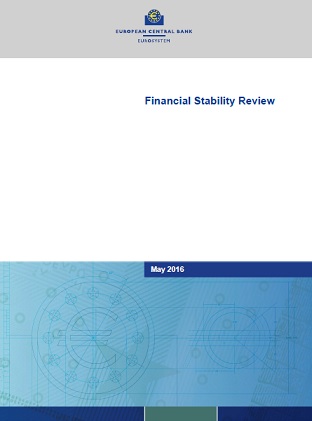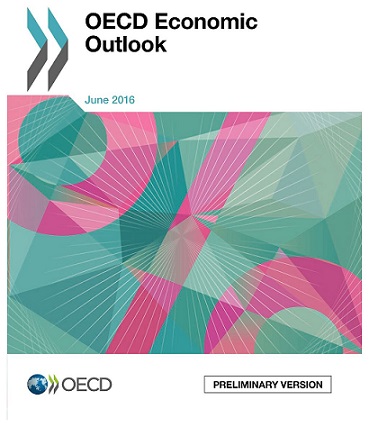Elizaveta Krylova, (2016), “Determinants of euro-denominated corporate bond spreads”, ECB Working Paper 1912, Ιούνιος 2016 This paper computes time-varying indicators of the relative importance of different credit spread determinants, including rating, sector and country attribution as well as the coupon rate, maturity and liquidity on the basis of the comprehensive dataset of individual bonds. Additionally, it decomposes variances of rating-specific (country- and sector-specific) spread indices into the impacts of explanatory variables. …Read More
Can Minimum Wages Raise Workers’ Incomes in the Long Run
George Economides, Thomas Moutos, (2016), “Can Minimum Wages Raise Workers’ Incomes in the Long Run”, CESifo Working Paper No. 5913, Μάϊος 2016 Using an intertemporal model of saving and capital accumulation with two types of agents (workers and capitalists) we demonstrate that it is impossible for any binding minimum wage to increase the after-tax incomes of workers if the production function is Cobb-Douglas with constant returns to scale, or if there …Read More
Financial Stability Review
European Central Bank, (2016), “Financial Stability Review”, ECB, Μάιος The Financial Stability Review (FSR) assesses developments relevant for financial stability, including identifying and prioritising the main sources of systemic risk and vulnerabilities for the euro area financial system – comprising intermediaries, markets and market infrastructures. It does so to promote awareness of these systemic risks among policymakers, the financial industry and the public at large, with the ultimate goal of …Read More
Survey on the Access to Finance of Enterprises in the euro area
European Central Bank, (2016), “Survey on the Access to Finance of Enterprises in the euro area”, ECB, Ιούνιος This report presents the main results of the 14th round of the Survey on the Access to Finance of Enterprises (SAFE), which was conducted between 10 March and 21 April 2016. The total euro area sample size was 11,725 enterprises, of which 10,709 (91%) had fewer than 250 employees.1 The report mainly …Read More
Helicopter Money: A Disguise For Debt Financing Funded By Short-Term Borrowing
Kay, John, (2016), “Helicopter Money: A Disguise For Debt Financing Funded By Short-Term Borrowing”, Social Europe, 2 Ιουνίου The term “helicopter money” is derived from a vivid image created by the US economist Milton Friedman in which a central banker showers notes on a grateful populace. More recently, the notion has been promoted by Adair Turner, the former chairman of the UK financial regulator, in his book, Between Debt and the Devil. …Read More
OECD Economic Outlook
OECD, (2016), “OECD Economic Outlook”, OECD, Volume 2016 Issue 1, Ιούνιος The global economy is stuck in a low-growth trap that will require more coordinated and comprehensive use of fiscal, monetary and structural policies to move to a higher growth path and ensure that promises are kept to both young and old, according to the OECD’s latest Global Economic Outlook. “Growth is flat in the advanced economies and has slowed in many …Read More
Inflation expectations and monetary policy in Europe
Elena Andreou, Snezana Eminidou, Marios Zachariadis, (2016), “Inflation expectations and monetary policy in Europe”, CEPR DP11306, Ιούνιος We use monthly data across fifteen euro-area economies for the period 1985:1-2015:3 to obtain different monetary policy shocks pertaining to more versus less informed individuals. We then investigate how these affect inflation expectations of different types of consumers before and after the incidence of the recent Crisis. Shocks obtained based on the assumption that …Read More
Neoliberalism: Oversold?
Ostry, Jonathan D., Loungani, Prakash, Furceri, Davide, (2016), “Neoliberalism: Oversold?”, IMF Finance and Development, Volume 53 Number 2, Iούνιος Milton Friedman in 1982 hailed Chile as an “economic miracle.” Nearly a decade earlier, Chile had turned to policies that have since been widely emulated across the globe. Th e neoliberal agenda—a label used more by critics than by the architects of the policies— rests on two main planks. Th e fi rst …Read More
The abandonment of counter-cyclical fiscal policy
Cohen-Setton, Jérémie, (2016), “The abandonment of counter-cyclical fiscal policy”, Bruegel, 3o Μαΐου What’s at stake: The reluctance to use fiscal policy as a stabilizing tool in the current deflationary environment has been puzzling to many and a number of authors are now putting forward possible explanations.In its 2015 Fiscal Monitor, the IMF writes that to be stabilizing, the fiscal balance needs to increase when output rises and to decrease when it falls. …Read More
Labor policies and capital mobility in theory and in EMU
Giuseppe Bertola, (2016), “Labor policies and capital mobility in theory and in EMU”, European Economic Review Volume 87, Αύγουστος Europe׳s Economic and Monetary Union (EMU) was characterized by large international imbalances and uneven national labor market reforms. In this paper׳s model, labor policies that aim to increase the welfare of capital-poor individuals within each country are influenced by financial integration across differently capital-abundant countries. The model predicts that capital outflows should be …Read More







